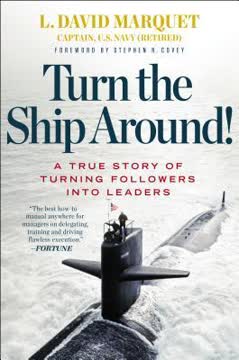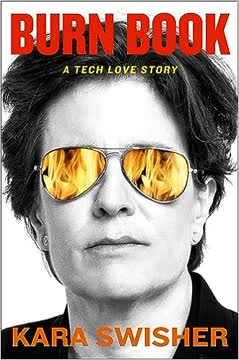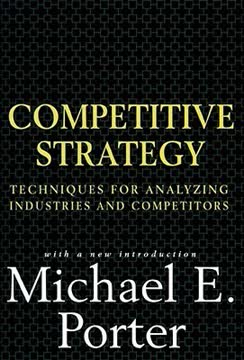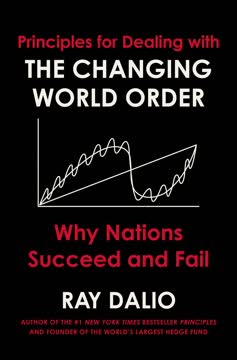Key Takeaways
1. Character is the foundation of effective leadership and personal success
"If you fail in character, you fail in leadership because you lose the trust of your subordinates and your superiors."
Character drives success. In both personal and professional spheres, character forms the bedrock of achievement and fulfillment. It's not just about competence or talent, but about the values and principles that guide one's actions and decisions. Character strengths such as integrity, perseverance, and empathy are essential for building trust, inspiring others, and navigating complex ethical dilemmas.
Leadership demands character. Effective leaders must embody and exemplify positive character traits. They set the tone for their organizations, shape culture, and influence the behavior of those around them. Without a strong moral compass, even the most skilled leaders will ultimately fail to earn the respect and trust necessary for long-term success.
Character development is lifelong. While some aspects of character may be innate, many can be cultivated and strengthened over time. This requires self-reflection, deliberate practice, and a commitment to continuous improvement. Organizations and individuals who prioritize character development create a powerful competitive advantage in today's complex, rapidly changing world.
2. Strengths of the gut: Courage, grit, and integrity drive achievement
"That which does not kill us only makes us stronger."
Courage fuels action. Courage, both physical and moral, is essential for facing challenges and taking risks necessary for growth and success. It allows individuals to stand up for their beliefs, make difficult decisions, and persevere in the face of adversity. Examples like Captain Barry Bridger, who endured years as a prisoner of war, demonstrate the transformative power of courage.
Grit enables perseverance. Defined as "the passionate pursuit of long-term goals," grit is a critical factor in achieving success, often outweighing raw talent or intelligence. Research by Angela Duckworth has shown grit to be a powerful predictor of achievement across various domains, from academic performance to military training.
Integrity builds trust. Consistently aligning actions with values, even when it's difficult or costly, is the essence of integrity. It forms the foundation of trust in personal and professional relationships. Leaders who demonstrate unwavering integrity inspire confidence and loyalty in their teams, creating a culture of honesty and ethical behavior.
3. Strengths of the head: Wisdom, creativity, and curiosity foster innovation
"The greatest weapons on the battlefield were not rifles and tanks, but the six inches between the ears—the intellectual understanding of the complexity of this battlefield."
Wisdom guides decision-making. Wisdom involves the ability to apply knowledge, experience, and good judgment to complex situations. It allows leaders to see the big picture, consider multiple perspectives, and make sound decisions that benefit the long-term interests of their organizations and stakeholders.
Creativity drives problem-solving. In today's rapidly changing world, the ability to think creatively and generate innovative solutions is invaluable. Leaders who foster a culture of creativity and open-mindedness empower their teams to tackle challenges in novel ways and stay ahead of the competition.
Curiosity fuels learning and growth. A curious mindset drives continuous learning and adaptation. Leaders who remain intellectually curious are better equipped to navigate uncertainty, embrace new technologies, and identify emerging opportunities. Cultivating curiosity at all levels of an organization promotes innovation and agility.
4. Strengths of the heart: Love, kindness, and gratitude build relationships
"We few, we happy few, we band of brothers, for he today that sheds his blood with me shall be my brother."
Empathy strengthens connections. The ability to understand and share the feelings of others is crucial for building strong relationships and fostering a positive organizational culture. Leaders who demonstrate empathy create environments where team members feel valued, understood, and supported.
Kindness promotes collaboration. Acts of kindness, both large and small, contribute to a positive work environment and strengthen social bonds. When kindness is a core value, it encourages cooperation, reduces conflict, and enhances overall team performance.
Gratitude enhances well-being. Regularly expressing appreciation for others and recognizing their contributions not only improves relationships but also increases personal happiness and job satisfaction. Leaders who cultivate a culture of gratitude create more engaged, motivated, and loyal teams.
5. Trust is the cornerstone of leadership, built on competence, character, and caring
"The most important ingredient to effective leadership is trust."
Trust is multifaceted. Trust in leadership is built on three key pillars:
- Competence: Demonstrating the skills and knowledge necessary to perform effectively
- Character: Consistently acting with integrity and adhering to ethical principles
- Caring: Showing genuine concern for the well-being of team members and stakeholders
Trust enables effective teamwork. When trust is high, teams can collaborate more efficiently, take calculated risks, and adapt to changing circumstances. Trust reduces the need for micromanagement and empowers individuals to take initiative and innovate.
Rebuilding broken trust. While trust can be easily damaged, it can be rebuilt through consistent, intentional actions that demonstrate competence, character, and caring. Leaders must prioritize transparency, accountability, and follow-through to restore trust once it has been compromised.
6. Organizational culture shapes individual character and performance
"Culture does not change because we desire to change it. Culture changes when the organization is transformed; the culture reflects the realities of people working together every day."
Culture sets the tone. Organizational culture, defined by shared values, beliefs, and behaviors, profoundly influences individual conduct and decision-making. A strong, positive culture aligned with ethical principles can reinforce and amplify individual character strengths.
Leaders shape culture. Through their words and actions, leaders play a crucial role in defining and reinforcing organizational culture. They must consistently model the values and behaviors they wish to see throughout the organization.
Culture impacts performance. Organizations with strong, positive cultures tend to outperform their peers. They attract and retain top talent, foster innovation, and build stronger relationships with customers and stakeholders. Examples like Johnson & Johnson demonstrate how a clear, values-driven culture can guide an organization through crises and drive long-term success.
7. Character development requires mentorship, skill-building, and leadership opportunities
"Mentorship is essential to character development. It is hard to grow without it."
Effective mentorship accelerates growth. Mentors provide guidance, share experiences, and offer constructive feedback that helps individuals develop their character strengths and leadership skills. Organizations should prioritize formal and informal mentorship programs to support character development at all levels.
Skill-building enhances character. Practical experiences and targeted training programs help individuals develop and refine their character strengths. This can include activities like ethical decision-making scenarios, leadership simulations, and reflective exercises.
Leadership opportunities test and strengthen character. Providing individuals with progressively challenging leadership roles allows them to apply and strengthen their character in real-world situations. This hands-on experience is crucial for developing well-rounded, effective leaders.
8. Adversity can be a catalyst for character growth and resilience
"As iron sharpens iron, so one person sharpens another."
Adversity reveals character. Challenging situations often bring out an individual's true character, exposing both strengths and weaknesses. How one responds to adversity can be a powerful indicator of their leadership potential and overall resilience.
Growth through struggle. While adversity can be difficult, it also presents opportunities for significant personal and professional growth. Overcoming obstacles builds confidence, develops problem-solving skills, and strengthens character.
Resilience can be cultivated. Organizations can help individuals develop resilience through:
- Training programs that teach coping strategies and stress management techniques
- Creating supportive environments that encourage learning from failures
- Promoting a growth mindset that views challenges as opportunities for development
9. Recognizing and mitigating character risks prevents ethical failures
"An ounce of prevention is worth a pound of cure."
Identify potential risks. Organizations and individuals should proactively assess potential threats to ethical behavior and character. This includes recognizing personal weaknesses, environmental pressures, and organizational factors that could lead to ethical lapses.
Implement preventive measures. Once risks are identified, steps can be taken to mitigate them:
- Develop clear ethical guidelines and decision-making frameworks
- Provide regular ethics training and reinforcement
- Create channels for reporting ethical concerns without fear of retaliation
- Establish systems of accountability and transparency
Foster a speak-up culture. Encourage open communication about ethical issues and concerns. When individuals feel comfortable raising red flags, potential problems can be addressed before they escalate into major crises.
10. Winning the right way: Aligning personal and organizational values for lasting success
"Winning the right way has been discussed throughout this book. Here are some significant takeaways."
Define success holistically. True success encompasses more than just financial results or short-term victories. It involves achieving goals while upholding ethical principles, fostering positive relationships, and contributing to the greater good.
Align personal and organizational values. Individuals should seek organizations whose values align with their own, and organizations should recruit and develop employees who share their core principles. This alignment creates a powerful synergy that drives sustainable success.
Lead by example. Leaders must consistently demonstrate the values and behaviors they expect from others. This "walking the talk" is essential for building trust and creating a culture of integrity throughout the organization.
Embrace continuous improvement. Winning the right way requires ongoing commitment to character development and ethical leadership. Organizations and individuals should regularly reflect on their values, assess their actions, and strive for continuous improvement in living up to their highest principles.
Last updated:
FAQ
1. What is The Character Edge by Robert L. Caslen Jr. and Michael D. Matthews about?
- Focus on character and leadership: The Character Edge explores how positive character traits are essential for both individual and organizational success, emphasizing leadership with integrity.
- Integration of science and practice: The book blends decades of military leadership experience with behavioral science research, offering both theory and real-world application.
- Comprehensive approach: It covers identifying, developing, and sustaining character in individuals and organizations, using models like IROC and the West Point Leader Development System.
- Character as a competitive edge: The authors argue that character strengths provide an edge to succeed and “win the right way,” prioritizing long-term trust and excellence.
2. Why should I read The Character Edge by Robert L. Caslen Jr. and Michael D. Matthews?
- Unique collaboration: The book is co-authored by a retired lieutenant general and a behavioral scientist, offering a rare blend of practical and scientific perspectives.
- Timely and timeless insights: It addresses a growing character crisis in society and organizations, providing a blueprint for building leaders and organizations of character.
- Practical and research-based: Readers gain actionable advice on character development, assessment, and sustaining ethical cultures, grounded in both military and academic expertise.
- Focus on winning with integrity: The book emphasizes that character-driven leadership leads to lasting success and trust, not just short-term gains.
3. What are the key takeaways from The Character Edge by Robert L. Caslen Jr. and Michael D. Matthews?
- Character is foundational: Character is the basis of trust, which is critical for effective leadership and organizational performance.
- Three domains of character: The book categorizes character strengths into head (cognitive), heart (emotional/relational), and gut (courage/perseverance).
- Assessment and development: It provides frameworks and tools for assessing, selecting, and developing character in individuals and organizations.
- Winning the right way: Success is defined not just by outcomes, but by achieving goals with integrity and ethical values.
4. How do Robert L. Caslen Jr. and Michael D. Matthews define character in The Character Edge?
- Behavioral focus: Character is defined as acting in ways that benefit the world, which in turn benefits the individual, emphasizing actual behavior over mere intentions.
- Mutual benefit: Actions must positively impact others and the environment, creating a reciprocal relationship.
- Consistency: Character is consistent across situations and over time, reflecting deeply internalized values like honesty and integrity.
- Guided by values: Instinctive behavior is shaped by internalized values, not just external rules or pressures.
5. What are the “strengths of the head, heart, and gut” in The Character Edge, and why are they important?
- Head (cognitive strengths): Includes creativity, curiosity, open-mindedness, love of learning, and perspective, enabling problem-solving and wisdom.
- Heart (emotional/relational strengths): Encompasses love, kindness, forgiveness, and gratitude, which foster trust and strong relationships.
- Gut (courage and perseverance): Covers courage, grit, integrity, and perseverance, essential for enduring adversity and moral bravery.
- Balanced leadership: Effective leaders cultivate strengths across all three domains for holistic character and sustainable success.
6. What is the IROC model in The Character Edge and how does it help organizations?
- Four-part framework: IROC stands for Individual credibility, Relationships, Organizational climate, and Context, providing a comprehensive way to assess character in organizations.
- Holistic assessment: The model helps leaders evaluate how character impacts performance at multiple levels, from personal behavior to organizational culture.
- Guides improvement: By identifying strengths and weaknesses in each area, organizations can target interventions to build trust and integrity.
- Supports ethical culture: IROC encourages organizations to align individual and collective values for sustained excellence.
7. How does The Character Edge by Robert L. Caslen Jr. and Michael D. Matthews suggest organizations assess and develop character?
- Assessment tools: The book recommends using surveys like the IROC Organizational Rating Form and tools such as the MindVue Profile to measure character traits and noncognitive skills.
- Selection based on character: Organizations should prioritize past behaviors and accomplishments that reflect key character traits, not just technical aptitude.
- Ongoing development: Sustained mentoring, skill-building curricula, and leadership opportunities are essential for character growth.
- Feedback culture: Multi-source, candid feedback is crucial for guiding individual and organizational development.
8. What are the “Big Three” factors in nurturing good character according to The Character Edge?
- Positive and sustained mentoring: Structured, genuine mentoring at all levels provides guidance, feedback, and role modeling for character growth.
- Skill-building curricula and training: Character can be developed through education, self-reflection, and practical exercises, as seen in military and educational programs.
- Leadership opportunities: Progressive leadership roles allow individuals to practice and internalize character strengths, fostering traits like honesty and social intelligence.
- Integrated approach: Combining these three factors creates a robust environment for character development.
9. How does The Character Edge by Robert L. Caslen Jr. and Michael D. Matthews address character failures and ethical crises in organizations?
- Case studies of failure: The book analyzes real-world scandals, such as the West Point rugby team and UCF financial misconduct, to illustrate the consequences of neglecting character.
- Accountability: Leaders must monitor subcultures, enforce standards, and respond decisively to character failures to maintain trust.
- Ethical fading: The gradual erosion of ethical standards is explained, with prevention strategies including strong leadership and clear values.
- Importance of enforcement: Systems for monitoring and enforcement are necessary to prevent and address ethical lapses.
10. How does The Character Edge define and explain trust in leadership?
- Three C’s of trust: Trust is built on competence, character, and caring, all of which leaders must demonstrate consistently.
- 360-degree trust: Trust must flow in all directions—between leaders, subordinates, peers, and clients—for organizational effectiveness.
- Risk and predictability: Trust involves predictability and the willingness to accept risk, enabling growth and innovation.
- Communication as key: Honest, two-way communication is essential for building and sustaining trust.
11. What practical advice does The Character Edge offer for individuals to develop and maintain character?
- Self-assessment and feedback: Individuals should identify key character traits, list associated behaviors, and seek honest feedback from colleagues and mentors.
- Mentorship and reflection: Engaging with mentors and reflecting on strengths and weaknesses promotes ongoing character growth.
- Deliberate practice: Setting goals, embracing challenges, and learning from adversity help strengthen character traits.
- Avoiding pitfalls: Awareness of personal risks, such as the dark triad traits or social isolation, and building strong social networks are crucial for maintaining integrity.
12. What does The Character Edge by Robert L. Caslen Jr. and Michael D. Matthews say about “winning the right way” and its importance?
- Winning with integrity: Success is defined by achieving goals in ways consistent with ethical values and character, not just by outcomes.
- Historical and contemporary examples: The book highlights cases like Johnson & Johnson’s Tylenol response and military operations to show the value of ethical leadership.
- Sustainable success: Character-driven leadership builds lasting trust and reputation, ensuring long-term organizational health.
- Modeling values: Leaders must embody and instill head, heart, and gut strengths to create organizations that win honorably and sustainably.
Review Summary
The Character Edge receives mostly positive reviews, with readers praising its insights on leadership, character development, and integrity. Many appreciate the book's blend of military and civilian examples, practical advice, and emphasis on personal growth. Reviewers find value in the discussion of character strengths, moral virtues, and their impact on success. Some readers note the heavy focus on military experiences, particularly from West Point, which may not resonate with all audiences. Overall, the book is recommended for leaders, aspiring leaders, and those interested in personal development.
Similar Books









Download PDF
Download EPUB
.epub digital book format is ideal for reading ebooks on phones, tablets, and e-readers.




